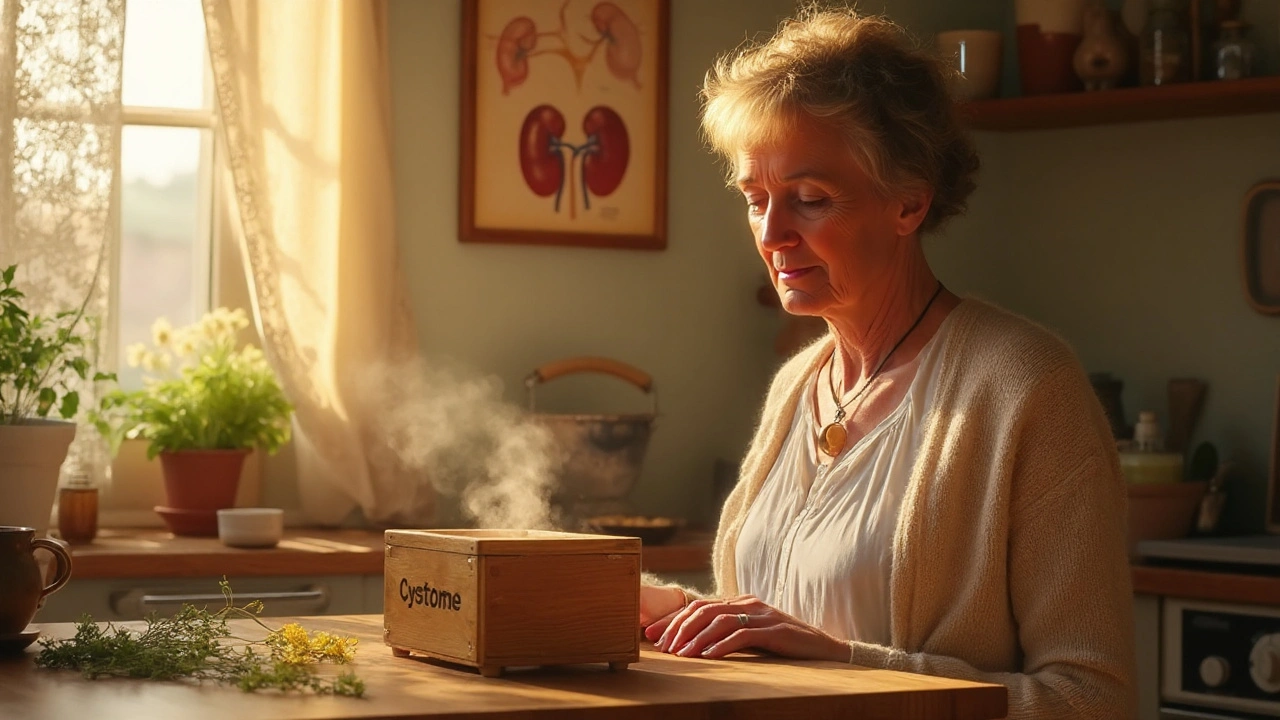Cystone: Natural Support for Kidney Health and Stone Prevention
If you’ve ever worried about kidney stones or urinary discomfort, you’ve probably heard of Cystone. It’s an herbal blend that claims to keep your kidneys clear and your urine flow smooth. In this guide we’ll break down what Cystone is, how it’s supposed to work, who might benefit, and what you should watch out for.
What’s Inside Cystone?
Cystone’s formula mixes several plant extracts, the star being Phyllanthus niruri, a tropical shrub used for centuries in folk medicine. Other ingredients often include Rosa canina (rosehip), Alstonia scholaris, and Tribulus terrestris. The manufacturers say each component helps dissolve tiny crystal formations, reduce inflammation, and support normal kidney function.
How Cystone Is Supposed to Work
The idea is simple: tiny calcium oxalate crystals form the core of most kidney stones. Cystone’s herbs are thought to prevent those crystals from sticking together, making them easier to pass in urine. Some studies on rats showed reduced crystal buildup when the supplement was given, but human data are still limited.
Beyond stone prevention, the blend may act like a mild diuretic, encouraging you to pee more often. That extra flow can flush out small particles before they grow. Users also report less pain during stone episodes, likely because the anti‑inflammatory herbs calm the lining of the urinary tract.
Who Might Try Cystone?
People with a history of recurring stones often look for something to add to their diet. If you’re already drinking plenty of water and eating a balanced diet, Cystone could be a handy extra. It’s also popular among those who prefer natural options over prescription meds.
However, Cystone isn’t a magic cure. If you have a large stone, severe pain, or infection, you still need medical care. The supplement is best used as a preventive tool, not as an emergency fix.
Safety and Possible Side Effects
Most users tolerate Cystone well. Mild stomach upset or a slight increase in urination are the most common complaints. Because it contains several plant extracts, allergic reactions are possible, especially if you’re sensitive to any of the ingredients.
If you’re pregnant, nursing, or taking prescription meds like blood thinners, talk to a doctor first. Some herbs can interact with drugs that affect clotting or blood pressure.
How to Take Cystone
The typical dosage is one to two tablets twice a day with meals. Stick to the label or your doctor’s advice—more isn’t always better. Pair the supplement with plenty of water; you’ll need at least eight glasses a day to help the herbs do their job.
Keep the bottle in a cool, dry place, and check the expiration date. If you miss a dose, just take the next one at your regular time—don’t double up.
Bottom Line
Cystone offers a natural, plant‑based approach to keeping kidneys clear and reducing the chance of stone formation. It’s not a substitute for medical treatment, but for people who want an extra layer of protection, it can fit nicely into a healthy lifestyle. Always check with a healthcare professional before starting, especially if you have existing health conditions or take other medications.
Cystone Review: How This Herbal Supplement Tackles Kidney Stones
A deep-dive into Cystone-what it is, how it works, safety, dosage, and how it stacks up against other kidney‑stone remedies. Get the facts before you try it.
